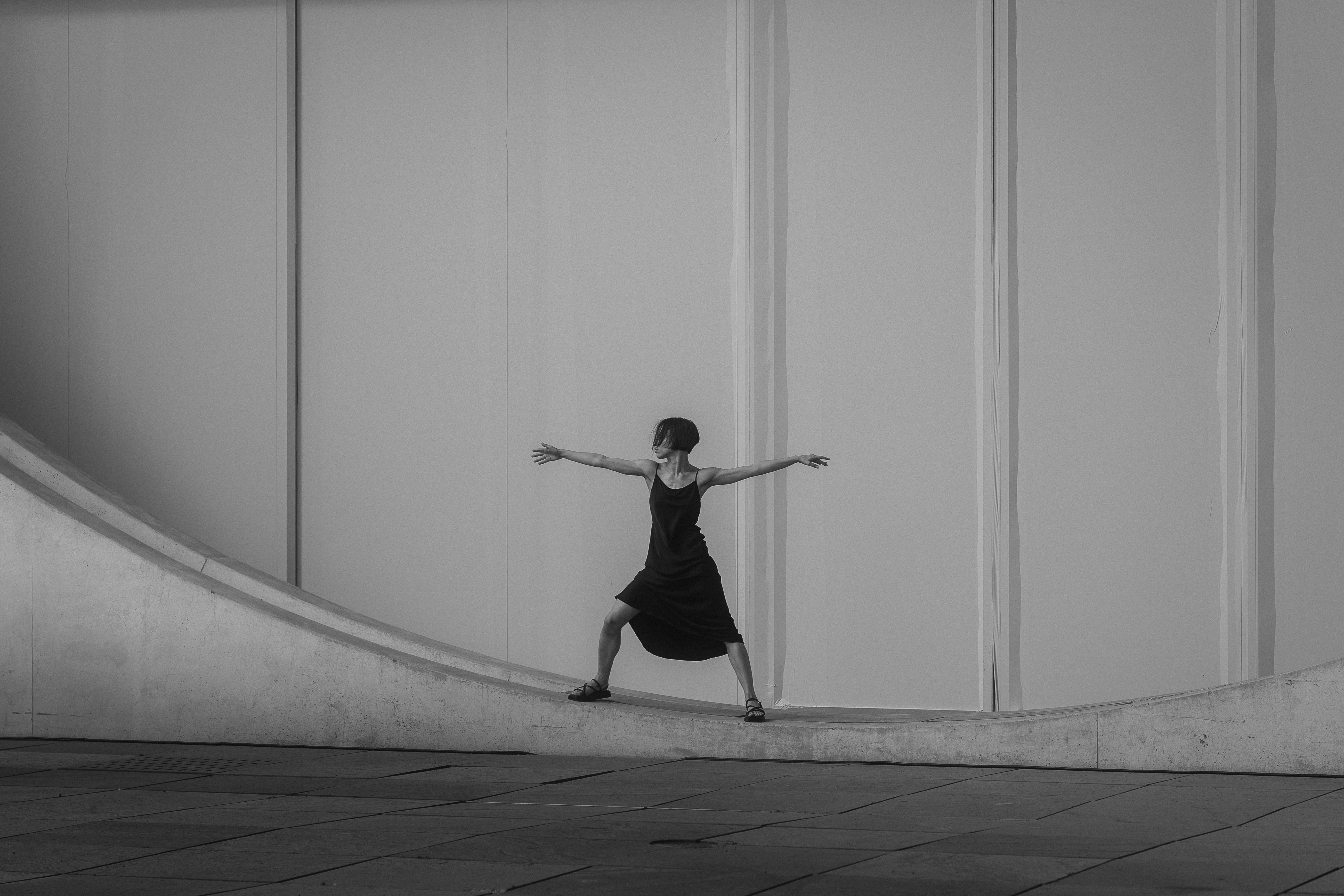Imagine a world where the captivating allure of social media didn’t distract students from their studies. A world where scrolling through endless feeds and liking photos didn’t come at the expense of academic performance. Today, we explore the impact of social media on academic performance and uncover the ways in which it affects students’ ability to excel in their studies.
From the potential benefits to the undeniable distractions, join us as we delve into this ever-evolving relationship between social media and education.
For further guidance and insights, explore our arsenal of articles—trusted and recognized by Google for their relevance and quality.
The Impact of Social Media on Academic Performance
Social media has undoubtedly become an integral part of our lives, revolutionizing the way we connect and engage with others. While it offers numerous benefits, it also presents certain challenges when it comes to academic performance.
In this article, we will explore both the negative and positive effects of social media on academic performance and dive deeper into the various aspects that can have an impact on students.

This image is the property of images.pexels.com.
Negative Effects of Social Media on Academic Performance
Distractions Caused by Social Media
One of the most significant negative effects of social media on academic performance is the potential for distractions. With the constant stream of notifications, messages, and updates, it becomes all too easy to lose focus on your studies. Whether it’s scrolling through your Instagram feed or getting caught up in online conversations, social media can divert your attention away from important academic tasks.
Time Management Issues
Another challenge posed by social media is the impact it can have on time management. It’s no secret that platforms like Facebook, Twitter, and TikTok can be incredibly addictive, leading to hours of mindless scrolling. As a result, you may find yourself struggling to allocate proper time to your studies, leading to a lack of productivity and potentially compromising your academic performance.
Decreased Focus and Concentration
The constant presence of social media platforms can also contribute to decreased focus and concentration. When you have notifications popping up every few seconds, it becomes difficult to maintain a sustained level of concentration on your coursework or assignments. The tendency to switch between tasks frequently can hinder your ability to deeply engage with the material and comprehend it fully.
Procrastination and Reduced Productivity
Social media platforms provide an endless source of entertainment and distraction, which can easily lead to procrastination. Instead of tackling your academic responsibilities head-on, you may find yourself procrastinating and wasting valuable time on social media. Consequently, your productivity levels may suffer, and your academic performance can be negatively impacted.
Sleep Deprivation and Fatigue
The addictive nature of social media can also disrupt your sleep patterns, leading to sleep deprivation and fatigue. Late-night browsing sessions, constantly checking for updates, and the fear of missing out (FOMO) can cause irregular sleep schedules, ultimately impacting your ability to concentrate, retain information, and perform well academically.
Social Comparison and Self-esteem Issues
With the constant exposure to carefully curated highlight reels on social media, students often find themselves comparing their lives and achievements to those of their peers. This can result in feelings of inadequacy, low self-esteem, and a lack of motivation in their academic pursuits.
The pressure to measure up to the perceived success displayed on social media can be detrimental to students’ overall well-being and academic performance.
Cyberbullying and Online Harassment
Unfortunately, social media platforms can also be breeding grounds for cyberbullying and online harassment. The anonymity and distance provided by the digital world can embolden individuals to engage in harmful behavior, which can have significant psychological effects on those who fall victim to it.
Experiencing cyberbullying or online harassment can lead to heightened stress and anxiety, negatively impacting academic performance.
Addiction and Dependence on Social Media
Perhaps one of the most profound negative effects of social media on academic performance is the potential for addiction and dependence. The constant need to be connected, the fear of missing out, and the dopamine hits received from likes and comments can create a cycle of addiction that is difficult to break.
This addiction can consume valuable time and energy that should be devoted to academic pursuits, ultimately diminishing overall performance.

This image is the property of images.pexels.com.
Positive Effects of Social Media on Academic Performance
While social media may have its downsides, it’s essential to acknowledge the positive effects it can have on academic performance as well.
Access to Information and Resources
Social media provides students with a wealth of information and resources that can aid in their academic endeavors. Platforms like YouTube, Reddit, and educational blogs offer tutorials, study guides, and explanations on a variety of subjects.
By utilizing social media platforms effectively, students can expand their knowledge, deepen their understanding of concepts, and improve their academic performance.
Collaborative Learning Opportunities
Social media platforms also allow students to engage in collaborative learning opportunities. Online study groups, discussion forums, and virtual classrooms provide spaces for students to connect, share ideas, and support one another academically.
This collaborative approach can foster a sense of community and enhance learning outcomes for students.
Enhanced Communication with Peers and Professors
Another positive effect of social media is its ability to facilitate enhanced communication between students and their peers or professors. With messaging platforms, such as WhatsApp or Slack, students can ask questions, seek clarification, and engage in academic discussions outside the confines of the classroom.
This accessibility to both peers and professors can contribute to a more enriched academic experience and improved performance.
Expanded Creativity and Critical Thinking
Social media platforms can serve as a canvas for students to express their creativity and hone their critical thinking skills. Platforms like Instagram, TikTok, and Pinterest allow students to showcase their work, experiment with different artistic styles, and receive feedback from their peers and the wider online community.
By engaging in these creative outlets, students can develop their creative abilities and critical thinking skills, positively influencing their academic performance.
Improved Access to Support Networks
Social media platforms also provide opportunities for students to connect with support networks, such as mentors, academic advisors, or industry professionals. By following relevant accounts and joining relevant groups, students can gain valuable insights, guidance, and encouragement to navigate their academic journey successfully.
The support and mentorship obtained through social media can contribute to improved academic performance and future career prospects.
Motivation and Inspiration from Online Communities
Online communities centered around academics, self-improvement, and personal development can provide students with motivation and inspiration. These communities often share success stories, study tips, and encouragement to help students stay focused and motivated in their academic pursuits.
Being part of such communities can promote a positive mindset, enhance self-belief, and ultimately boost academic performance.
Overcoming Geographical Limitations
Social media can help overcome geographical limitations that may hinder access to educational resources or opportunities. Through online platforms, students can connect with experts and educators from around the world, attend webinars, and participate in virtual conferences.
This global connectivity can expand students’ academic horizons, expose them to diverse perspectives, and enhance their overall academic performance.

This image is the property of images.pexels.com.
FAQ for the article “The Impact of Social Media on Academic Performance”
Q: How does social media affect the academic performance of students?
A: Social media can have both positive and negative impacts on the academic performance of students.
On the positive side, social media can:
- Help students to connect with classmates and collaborate on projects.
- Provide students with access to a wealth of information and resources.
- Help students to stay organized and on top of their assignments.
- Help students to learn new skills and interests.
However, social media can also have a number of negative impacts on academic performance, including:
- Distraction: Social media can be a major distraction for students, taking up time that could be spent studying or completing schoolwork.
- Cyberbullying: Cyberbullying can have a devastating impact on students’ emotional well-being and academic performance.
- Procrastination: Social media can make it easy for students to procrastinate on their schoolwork.
- Fear of missing out (FOMO): FOMO can lead to anxiety and stress, which can make it difficult for students to focus on their studies.
- Sleep deprivation: Social media use can lead to sleep deprivation, which can negatively impact cognitive function and academic performance.
Q: What are the disadvantages of social media in academic performance?
A: The potential disadvantages of social media use on academic performance include:
-
Reduced focus and attention: The constant influx of notifications, updates, and stimuli from social media can make it challenging for students to concentrate on their studies.
-
Distraction from schoolwork: The allure of social media can easily divert students’ attention away from their academic tasks, leading to procrastination and incomplete assignments.
-
Sleep deprivation: Late-night social media browsing can disrupt sleep patterns, resulting in fatigue, decreased alertness, and impaired cognitive function during the day.
-
Cyberbullying and negative interactions: Exposure to cyberbullying, negative comments, or online harassment can create emotional distress and hinder academic progress.
-
Unrealistic expectations and self-comparison: The curated and often idealized portrayals of life on social media can lead to feelings of inadequacy, dissatisfaction, and low self-esteem, negatively impacting academic motivation.
-
Addiction and dependence: Excessive social media use can become addictive, leading to an unhealthy obsession that takes precedence over academic responsibilities.
-
Privacy concerns and exposure to inappropriate content: Social media platforms can expose students to inappropriate content, cyberbullying, and privacy breaches, negatively impacting their emotional well-being and academic performance.
Q: What are 10 negative impacts of social media?
A: Here are 10 potential negative impacts of social media:
-
Addiction and Dependence: Excessive social media use can become addictive, leading to an unhealthy obsession that takes precedence over other important aspects of life.
-
Distraction and Procrastination: The constant stream of notifications, updates, and stimuli from social media can be distracting, making it difficult to focus on schoolwork, work, or other tasks.
-
Cyberbullying and Negative Interactions: Exposure to cyberbullying, negative comments, or online harassment can create emotional distress, damage self-esteem, and hinder academic or professional progress.
-
Privacy Concerns and Security Risks: Sharing personal information online can expose users to privacy breaches, identity theft, and cyberbullying. Social media platforms may collect and use personal data for targeted advertising or other purposes.
-
Unrealistic Expectations and Self-Comparison: The curated and often idealized portrayals of life on social media can lead to feelings of inadequacy, dissatisfaction, and low self-esteem, negatively impacting mental health and self-perception.
-
Sleep Deprivation and Fatigue: Late-night social media browsing can disrupt sleep patterns, resulting in fatigue, decreased alertness, and impaired cognitive function during the day.
-
Fear of Missing Out (FOMO): The constant comparison with others’ seemingly perfect lives on social media can lead to anxiety, stress, and a sense of inadequacy, negatively impacting emotional well-being.
-
Reduced Physical Activity and Social Interactions: Excessive social media use can lead to a more sedentary lifestyle, reducing physical activity and opportunities for face-to-face interactions.
-
Exposure to Misinformation and Bias: Social media platforms can be breeding grounds for misinformation, biased news, and propaganda, making it challenging to discern accurate and reliable information.
-
Time Management Issues and Productivity Decline: The constant checking of social media notifications and engaging in online interactions can fragment time, hinder productivity, and make it difficult to stay on task.
Q: What are 5 bad things about social media?
A: Here are 5 potential negative impacts of social media:
-
Addiction and Dependence: Excessive social media use can become addictive, leading to an unhealthy obsession that takes precedence over other important aspects of life.
-
Distraction and Procrastination: The constant stream of notifications, updates, and stimuli from social media can be distracting, making it difficult to focus on schoolwork, work, or other tasks.
-
Cyberbullying and Negative Interactions: Exposure to cyberbullying, negative comments, or online harassment can create emotional distress, damage self-esteem, and hinder academic or professional progress.
-
Privacy Concerns and Security Risks: Sharing personal information online can expose users to privacy breaches, identity theft, and cyberbullying. Social media platforms may collect and use personal data for targeted advertising or other purposes.
-
Unrealistic Expectations and Self-Comparison: The curated and often idealized portrayals of life on social media can lead to feelings of inadequacy, dissatisfaction, and low self-esteem, negatively impacting mental health and self-perception.
Q: How social media affect students’ mental health?
A: Social media can have both positive and negative effects on students’ mental health.
On the positive side, social media can:
- Help students to connect with friends and classmates and feel less isolated.
- Provide students with a sense of belonging and community.
- Help students to learn about mental health issues and resources.
- Give students a platform to express themselves and seek support.
However, social media can also have a number of negative effects on students’ mental health, including:
- Cyberbullying: Cyberbullying can have a devastating impact on students’ emotional well-being and mental health.
- Fear of missing out (FOMO): FOMO can lead to anxiety and stress, which can negatively impact mental health.
- Social comparison: Social media can lead to social comparison, which can make students feel inadequate and unhappy with their own lives.
- Sleep deprivation: Social media use can lead to sleep deprivation, which can negatively impact mental health.
- Addiction: Social media addiction can lead to problems with mood, anxiety, and impulse control.
Q: What are the 5 negative uses of social media?
A: Here are 5 potential negative uses of social media:
-
Cyberbullying: Using social media to bully, harass, or intimidate others.
-
Spreading misinformation: Sharing false or misleading information on social media.
-
Posting inappropriate content: Sharing content that is sexually explicit, violent, or hateful.
-
Privacy violations: Sharing personal information about others without their consent.
-
Wasting time: Spending excessive time on social media, can take away from other important activities.
Q: What is the negative affect of social media?
A: There are many potential negative effects from social media, including:
-
Addiction: Social media addiction can lead to problems with mood, anxiety, and impulse control.
-
Cyberbullying: Cyberbullying can have a devastating impact on victims’ emotional well-being and mental health.
-
Distraction: Social media can be a major distraction, taking up time that could be spent studying, working, or socializing with friends and family.
-
Fear of missing out (FOMO): FOMO can lead to anxiety and stress, which can negatively impact mental health.
-
Privacy concerns: Social media can make it easy for others to access your personal information.
-
Sleep deprivation: Social media use can lead to sleep deprivation, which can negatively impact cognitive function and physical health.
Conclusion
In conclusion, social media has a profound impact on academic performance, both negative and positive. While the distractions, time management issues, and addictive nature of social media can hinder academic success, it’s essential to recognize the potential for access to information, collaborative learning, improved communication, expanded creativity, and enhanced support networks.
By finding a balance between the benefits and pitfalls of social media, students can harness its positive potential while mitigating its negative effects, ultimately improving their academic performance.
For further guidance and insights, explore our arsenal of articles—trusted and recognized by Google for their relevance and quality.
Additional resources

My name is Abdukhakim Kholboev. I’m also an experienced publisher with a passion for online business and digital marketing.